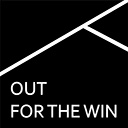
© Alexi
I am a powerlifter and founder of Zacht Beton, a strength training PT studio that aims to make strength sports more accessible to everyone. For a few months now, Zacht Beton has been an official club at the powerlifting and weightlifting federation of Flanders (VGPF).
Safe to say that my life is deeply embedded in the world of sports.
Gender and (organized) sports aren’t the best friends though. It’s hard to think of a topic that creates more polarization in my life. Even when I worked for LGBTQI+ organizations we often called sports ‘too complicated’ to vocalize a firm statement about. The world of sports seems to put a magnifying glass to gender norms and bombard it as its primary source of division. Gender norms in society can be circumvented. You can buy your son a barbie doll if he prefers to play with a doll over a monster truck. In contrast, it is not as easy to conquer these binary gender norms when they are the foundation of your construct. No matter where you look -with some exceptions like roller derby and quidditch- male / female divisions are the first thing you face. In a way it’s understandable. We prefer to simplify things into an easily digestible binary and there are a lot of anatomical, hormonal and chromosomal differences between (cis)man and (cis)woman that makes this binary division seem logical. Wouldn’t it be easy if society was neatly divided into male / female, with all the physiological attributes that are associated with those boxes?
Unfortunately for the binary minded, the world is a beautifully diverse tapestry of variations to this male / female binary. Not just in anatomical, hormonal, genital, chromosomal ways, but in ways of gender identity as well. To divide sports into a neat binary is to choose to ignore the diverse reality we live in. Binary division excludes entire groups of people in society. This is a fact.
As a non-binary and competitive powerlifter I am pretty directly affected by this. I compete in the female division and register as ‘F’ for my insurance. As things stand however, I’m alright with this. My physiology is ‘female’. I have an estrogen dominant body, XX chromosomes as far as I’m aware, and I’m not on any hormones. I wouldn’t stand a chance in the male division, nor would I want to be there. As things stand -by which I mean the binary female / male basis upon which sports are built- I wouldn’t want it any other way. The first few years I struggled with this, but I’ve found a way to shelf these feelings out of love for my sports.
In a way I am lucky to be able to do this. There are trans and intersex people out there who are inadvertedly banned from practising the sports they love. Trans people who go through medical transition are straight up excluded from competing. And not just in elite competition. Very often this exclusion happens with kids and adults practicing sports on an amateur level. In several states in the US there are state laws prohibiting trans kids from participating altogether. This is outrageous and 100% fueled by transphobia, despite the ‘rationalizations’ often given.
Elite trans athletes have to meet very strict WADA (World Anti Doping Agency) rules before they get the green light to compete. These rules don’t cut it for many though, and as a consequence trans athletes who dare to follow their dreams are faced with horrendous hatred. Intersex people with variations in hormones, chromosomes and sex characteristics face the same exclusion. This affects not only trans, non binary or interesex people but all of us, since now girls who are deemed to be more ‘masculine looking’ or manage to reach unseen levels in their sports are forced to undergo intrusive testing, violating not only their right to privacy but their dignity and sense of self as well.
If we take a step back, remove transphobia from the equation and look at this from an objective standpoint, we’d have to conclude that if divisions don’t reflect reality, they need to be revised and altered. Back to the drawing board! However, this is such a huge task that it could not be done in a few years. And in bridging this period until everyone is treated equally and fairly, I don’t see any other option than to include everyone. Trans, intersex, elite, amateur and novice alike.
Note: some voices have gone up to create a separate division for trans people, drawing a parallel to the paralympics. However, there are some big issues with this idea they seem to miss. There would be hardly any participants in this category since exclusion of sports starts on a local level. Also, treating trans and intersex people as a separate category also further ‘others’ them and removes them from regular competition. This entire idea sounds like a ‘let’s group the weirdos and toss them aside so the real athletes can do their thing’. Frankly, it’s disgusting and segregationist. Other issues are to be mentioned, like lack of attention and therefore sponsorship. There is however, in my mind, inspiration to be gathered from the way the paralympics organize their (competitive) categorization. This is based on physical characteristics and ability, not gender or sex. What this would look like in practice I don’t know, but I strongly feel like this is worth investigating.
What offends me maybe most about trans exclusion from elite sports is the message it sends to trans kids out there. They are -in a very real sense- told they are not welcome. That there is no space for them and they will face hatred if they walk into their local sports club. There is almost no bigger deterrence from participating in anything than this. Add this to the lack of openly trans inclusive policies in local gyms and sports clubs, the prevalence of homophobic and transphobic jokes and slurs, and you end up with an impossible uphill battle for a trans kid to start their journey.
Practicing sports should be empowering, strengthening, inclusive. It shouldn’t be such a fight for anyone to take even the first steps into any type of sport. If you want to keep sports fair and honest, like so many anti-trans voices out there claim, you welcome trans and intersex people – both in amateur and elite sports. Banning someone from participation is as far removed from the olympic mindset as can be.
—
by Alexi, ambassador of OFTW, powerlifter and founder of Zacht Beton
Wanna know more?
Read their story on Out For The Win
Go to zachtbeton.be or follow Alexi on Instagram






